Results
-
 £59.99
£59.99Over the Rainbow (Eb or Bb Cornet Solo with Brass Band - Score and Parts) - Arlen & Harburg - Morrison, Alan
Recently voted the greatest family film of all time the classic Wizard of Oz is one film that everybody knows. The film theme was re-invigorated with the release in 2004 of a new version by the relatively unknown Australian vocalist, Eva Cassidy. Unfortunately Eva Cassidy is no longer with us but this song will give generations of new music listeners an insight into her amazing vocal abilities and talent. The world-renowned Cornet soloist, Alan Morrison, has taken the Eva Cassidy version and crafted a wonderful Cornet solo in this award-winning arrangement. A wonderful chance to showcase either your Bb or Eb Cornet soloist in a work guaranteed to have your audiences in awe.
Estimated dispatch 7-14 working days
-
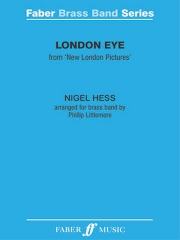 £34.99
£34.99London Eye (From New London Pictures) (Brass Band - Score and Parts)
London Eye is an incredibly large rotating wheel situated on the South Bank of the River Thames. This movement depicts a flight on this riverside wheel, at the top of which the panoramic view of London is breath-taking and the expanse of the music is a suitable depiction of that view. This piece is the second movement of Nigel Hesss New London Pictures which represents elements of London in the 21st Century. Suitable for Premier Youth/2nd Section Bands and above. Duration: 4.00
Estimated dispatch 7-14 working days
-
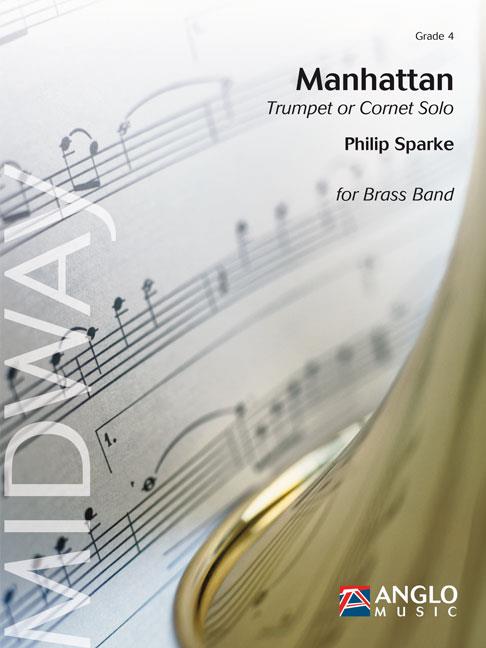 £104.99
£104.99Manhattan (Cornet Solo with Brass Band - Score and Parts)
Cornet or Trumpet Solo with Brass BandManhattan was commissioned by the United States Army Band for their solo cornet player Woodrow English and first performed by them in Carnegie Hall, New York, in November 2003. The two-movement work demonstrates both the lyrical and technical abilities of this outstanding player. The 'theme' is a weekend in New York and the opening bluesy movement, Saturday Serenade, describes the city on a Saturday night. While writing Sunday Scherzo, the composer pictured an early morning jog in Central Park. This vivaciously rhythmic second movement ends with an even quicker coda bringing the work to a brilliant close. Each movement can also be played individually when a shorter solo is required.Duration: 9:30
Estimated dispatch 7-14 working days
-
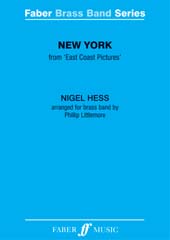 £49.99
£49.99New York (from East Coast Pictures) (Brass Band - Score and Parts)
For anyone who is familiar with this bizarre and wonderful city, this piece needs no explanation. New York is the third movement of East Coast Pictures, originally written for wind band, commissioned in 1985 by the British Youth Wind Orchestra with funds from National Westminster Bank plc. These three short pictures were inspired by several visits by the composer to a small part of the USAs East Coast, an area that provides great extremes in the geography and the people. Suitable for Premier Youth/2nd Section Bands and above. Duration: 6.00
Estimated dispatch 7-14 working days
-
 £36.64
£36.64March - New Jerusalem (Brass Band) Kenneth Downie
This sprightly march was the result of a request for a march in traditional style, incorporating a sacred tune that is popular in Holland. It was commissioned by Egbert Scheffer and Brass Band Valerius. The mood is distinctly chirpy and jovial, with a lightness of touch and a generous dose of good humour. This item will be ideal for bands looking for a new modern-day march to freshen up their concert programmes. Sheet music available from: UK - www.brassband.co.uk USA - www.solidbrassmusic.com Difficulty Level: 4th Section + Instrumentation: Soprano Cornet Eb Solo Cornet Bb Repiano Cornet Bb 2nd Cornet Bb 3rd Cornet Bb Flugel Horn Bb Solo Horn Eb 1st Horn Eb 2nd Horn Eb 1st Baritone Bb 2nd Baritone Bb 1st Trombone Bb 2nd Trombone Bb Bass Trombone Euphonium Bb Bass Eb Bass Bb Percussion 1-2
In Stock: Estimated dispatch 1-3 working days
-
£72.00
Fairytale of New York - Finer-MacGowan - Idar Torskangerpoll
Once upon a time a band set out to make a Christmas song. Not about snow or sleigh rides or mistletoe or miracles, but lost youth and ruined dreams. A song in which Christmas is as much the problem as it is the solution. A kind of anti-Christmas song that ended up being, for a generation, the Christmas song.With the recording of "Fairytale of New York", The Pogues and Kirsti MacColl (1959-2000) created a modern Christmas Classic
Estimated dispatch 7-14 working days
-
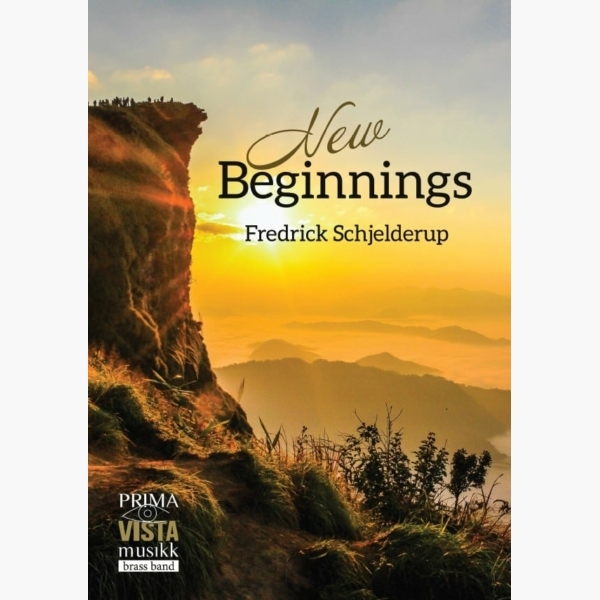 £64.95
£64.95New Beginnings - Fredrick Schjelderup
New Beginnings was commissioned by the National Youth Brass Band of Great Britain and was first performed by The National Children's Brass Band of Great Britain in August 2021. It describes in sonic terms the effect that energy can create,...
Estimated dispatch 5-7 working days
-
 £49.99
£49.99Fairytale of New York - Sean O'Loughlin
Recorded by the Celtic punk band The Pogues and featuring singer Kirsty MacColl, Fairytale of New York was released in 1987 and has remained an enduring and popular holiday favorite ever since. Comprised of two main sections, the opening is melancholy and lyrical, followed by the second part in a driving and energetic Irish-flavored groove. Sure to be a distinctive and appealing addition to any holiday concert.
Estimated dispatch 5-14 working days
-
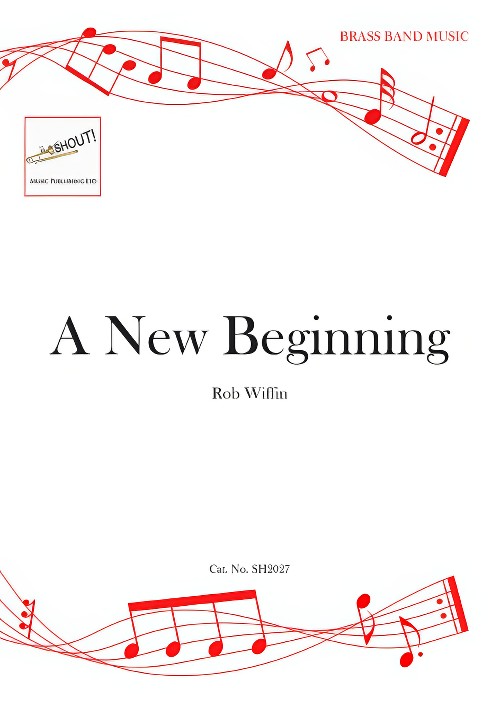 £28.95
£28.95A New Beginning (Brass Band - Score and Parts) - Wiffin, Rob
An extended fanfare/opener, A New Beginning is a joyous and exuberant outburst, an affirmation of the eternal hope of the human spirit. It starts and ends with the drama and splendour of a simple fanfare and the sections in between are full of energy, drive and purpose.The musical language is typically American in style with its typical feel of openness, space and grandeur. There are plenty of big moments but players and conductors are asked to pay careful attention to the various layers to prevent it all being performed at full volume.Duration: 4.30
Estimated dispatch 7-14 working days
-
 £69.99
£69.99Oldies Forever (Brass Band - Score and Parts)
In the field of popular music the years around the change from the 60's to the 70's saw a wealth of great releases. Many of these hits have been re-released or reworked by artists making them popular today with a new young audience. This new medley presents many hits that would be an attractive concert item in their own right but together they form a musical masterpiece with an almost irresistible appeal on the listener. 05:30
Estimated dispatch 7-14 working days
